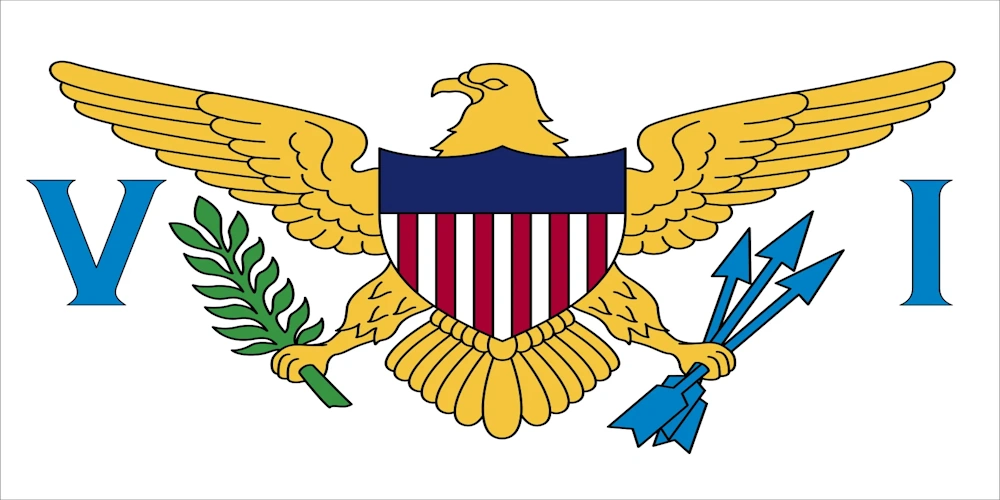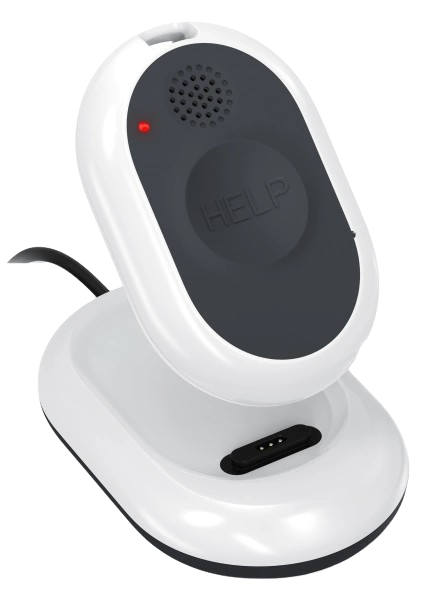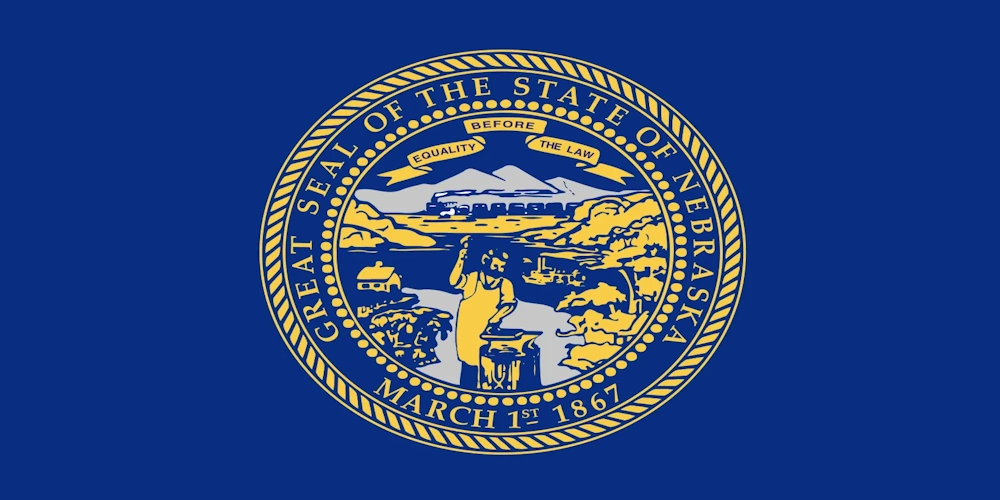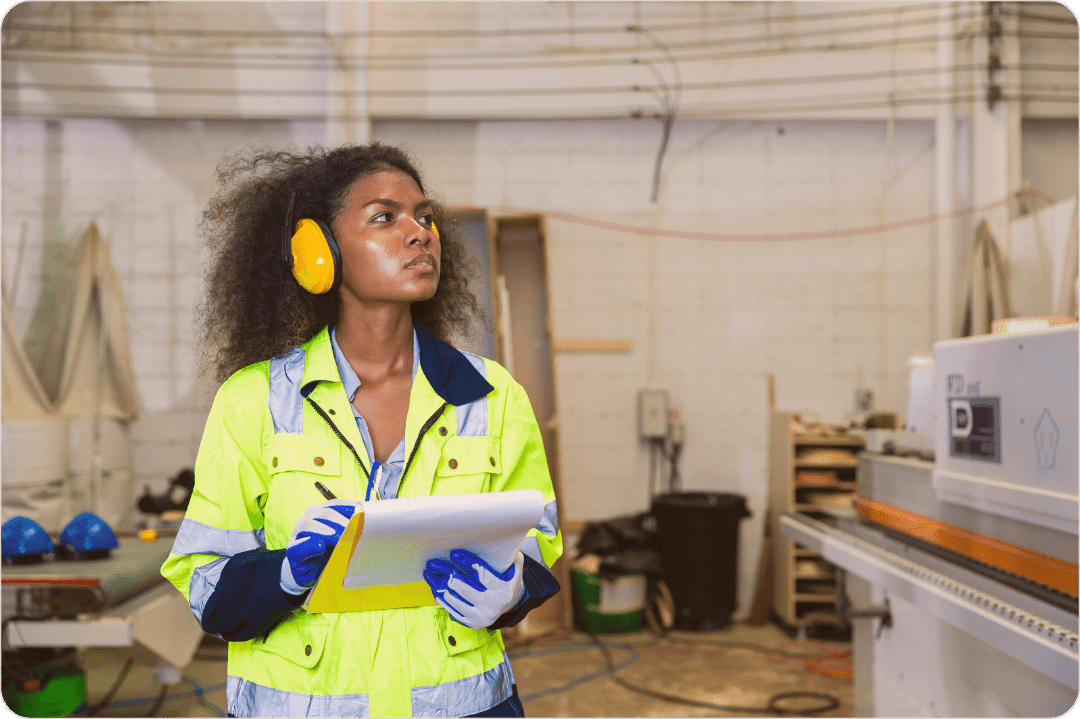The U.S. Virgin Islands (USVI), a U.S. territory in the Caribbean, supports industries such as tourism, public services, utilities, and transportation—many of which employ individuals who work alone or in isolated conditions. These lone workers face unique safety risks, especially when immediate assistance or supervision is unavailable. Employers in the Virgin Islands are responsible for putting proper protocols in place to ensure these workers remain safe and connected.
While the Virgin Islands do not operate their own occupational safety and health program, all private- and public-sector workplaces are covered by federal OSHA regulations, enforced under OSHA Region 2. Employers must comply with federal guidelines and may refer to additional local labor resources as needed.
On This Page
Our Guide To Lone Worker Safety Policy And Legislation In Virgin Islands
The U.S. Virgin Islands are under federal OSHA jurisdiction, which means the Occupational Safety and Health Administration (OSHA) directly enforces safety standards across industries on the islands. Although OSHA does not have a specific regulation that solely addresses lone workers, the General Duty Clause applies. This clause obligates employers to provide a workplace free from recognized hazards—including those associated with working alone.
Lone working environments can introduce elevated risks in remote, industrial, or off-hours settings. Employers must take proactive steps to assess potential hazards and implement measures to reduce or eliminate them.
How Virgin Islands Defines A Lone Worker
OSHA and the Virgin Islands do not provide a formal legal definition of a "lone worker." However, the term typically describes any employee who works without direct supervision or the immediate presence of colleagues. In the Virgin Islands, common lone worker roles include:
- Public sector employees conducting inspections or fieldwork
- Utility workers repairing or monitoring infrastructure alone
- Hotel and facility maintenance staff working after hours
- Healthcare or home service providers visiting patients
- Security officers patrolling properties alone
Given the geographic separation of many work sites across the islands, ensuring lone worker safety is particularly important in the USVI.
Employing A Lone Worker In Virgin Islands
Employers in the Virgin Islands must adhere to federal OSHA regulations and should adopt best practices to protect lone workers. This includes establishing protocols for communication, monitoring, and emergency response—especially when workers operate in isolated areas or after normal hours.
Key strategies include:
- Risk Assessments to identify job-specific hazards for lone workers
- Regular Check-In Systems, including manual or automated options
- Two-Way Communication Tools to maintain contact during work hours
- Emergency Response Plans that consider island infrastructure and response time
- Employee Training focused on situational awareness, reporting, and self-rescue
Implementing a formal lone worker safety program is not only good practice—it also demonstrates a strong commitment to employee well-being and OSHA compliance.
Learn How You Can Protect Your Employees With Loneworker.com

With Loneworker.com you can be equipped with the knowledge and the means to protect your employees and protect your business. Contact us today to learn more about how Loneworker.com can protect you and your employees.
How The Safe Lone Worker App Can Protect Virgin Islands Lone Workers And Employers
The Safe Lone Worker app is designed to enhance the safety of workers who operate independently or in remote conditions. With GPS tracking, automatic check-ins, emergency alerts, and fall detection, the app helps supervisors stay informed of a worker’s status in real time.
This is particularly valuable for the Virgin Islands, where infrastructure gaps and geographic spread can make physical oversight more difficult. The app adds a crucial layer of protection for employees across public works, healthcare, tourism, and more.
Virgin Islands Lone Worker Policies
Since the U.S. Virgin Islands fall under federal OSHA jurisdiction, employers must follow federal safety regulations without modifications by a local state plan. OSHA’s General Duty Clause mandates that employers identify and mitigate all recognizable hazards—including the specific challenges posed by working alone.
We recommend that employers, HR professionals, and safety officers operating in the Virgin Islands consult both OSHA.gov and OSHA Region 2 for up-to-date guidance. This article is intended for informational purposes only and does not serve as a substitute for legal or regulatory advice.
Virgin Isles Lone Worker Resources
OHS Contact Centre
- 1-866-415-8690
CDC / NIOSH
- 800-232-4636

Affordable Monitoring For Lone Workers In Virgin Isles

-
 Monitoring Your Employees' Safety
Monitoring Your Employees' Safety
-
 GPS Tracking And Monitoring
GPS Tracking And Monitoring
-
 Man Down Panic Alerts
Man Down Panic Alerts
-
 24/7 Protection Anywhere
24/7 Protection Anywhere
Lone Worker Legislation
Lone Worker Safety Policies And Legislation By State
-
 Alabama State Safety Policies And Legislation
Alabama State Safety Policies And Legislation
-
 Alaska State Safety Policies And Legislation
Alaska State Safety Policies And Legislation
-
 Arizona State Safety Policies And Legislation
Arizona State Safety Policies And Legislation
-
 Arkansas State Safety Policies And Legislation
Arkansas State Safety Policies And Legislation
-
 California State Safety Policies And Legislation
California State Safety Policies And Legislation
-
 Colorado State Safety Policies And Legislation
Colorado State Safety Policies And Legislation
-
 Connecticut State Safety Policies And Legislation
Connecticut State Safety Policies And Legislation
-
 Delaware State Safety Policies And Legislation
Delaware State Safety Policies And Legislation
-
 Florida State Safety Policies And Legislation
Florida State Safety Policies And Legislation
-
 Georgia State Safety Policies And Legislation
Georgia State Safety Policies And Legislation
-
 Hawaii State Safety Policies And Legislation
Hawaii State Safety Policies And Legislation
-
 Idaho State Safety Policies And Legislation
Idaho State Safety Policies And Legislation
-
 Illinois State Safety Policies And Legislation
Illinois State Safety Policies And Legislation
-
 Indiana State Safety Policies And Legislation
Indiana State Safety Policies And Legislation
-
 Iowa State Safety Policies And Legislation
Iowa State Safety Policies And Legislation
-
 Kansas State Safety Policies And Legislation
Kansas State Safety Policies And Legislation
-
 Kentucky State Safety Policies And Legislation
Kentucky State Safety Policies And Legislation
-
 Louisiana State Safety Policies And Legislation
Louisiana State Safety Policies And Legislation
-
 Maine State Safety Policies And Legislation
Maine State Safety Policies And Legislation
-
 Maryland State Safety Policies And Legislation
Maryland State Safety Policies And Legislation
-
 Massachusetts State Safety Policies And Legislation
Massachusetts State Safety Policies And Legislation
-
 Michigan State Safety Policies And Legislation
Michigan State Safety Policies And Legislation
-
 Minnesota State Safety Policies And Legislation
Minnesota State Safety Policies And Legislation
-
 Mississippi State Safety Policies And Legislation
Mississippi State Safety Policies And Legislation
-
 Missouri State Safety Policies And Legislation
Missouri State Safety Policies And Legislation
-
 Montana State Safety Policies And Legislation
Montana State Safety Policies And Legislation
-
 Nebraska State Safety Policies And Legislation
Nebraska State Safety Policies And Legislation
-
 Nevada State Safety Policies And Legislation
Nevada State Safety Policies And Legislation
-
 New Hampshire State Safety Policies And Legislation
New Hampshire State Safety Policies And Legislation
-
 New Jersey State Safety Policies And Legislation
New Jersey State Safety Policies And Legislation
-
 New Mexico State Safety Policies And Legislation
New Mexico State Safety Policies And Legislation
-
 New York State Safety Policies And Legislation
New York State Safety Policies And Legislation
-
 North Carolina State Safety Policies And Legislation
North Carolina State Safety Policies And Legislation
-
 North Dakota State Safety Policies And Legislation
North Dakota State Safety Policies And Legislation
-
 Ohio State Safety Policies And Legislation
Ohio State Safety Policies And Legislation
-
 Oklahoma State Safety Policies And Legislation
Oklahoma State Safety Policies And Legislation
-
 Oregon State Safety Policies And Legislation
Oregon State Safety Policies And Legislation
-
 Pennsylvania State Safety Policies And Legislation
Pennsylvania State Safety Policies And Legislation
-
 Rhode Island State Safety Policies And Legislation
Rhode Island State Safety Policies And Legislation
-
 South Carolina State Safety Policies And Legislation
South Carolina State Safety Policies And Legislation
-
 South Dakota State Safety Policies And Legislation
South Dakota State Safety Policies And Legislation
-
 Tennessee State Safety Policies And Legislation
Tennessee State Safety Policies And Legislation
-
 Texas State Safety Policies And Legislation
Texas State Safety Policies And Legislation
-
 Utah State Safety Policies And Legislation
Utah State Safety Policies And Legislation
-
 Vermont State Safety Policies And Legislation
Vermont State Safety Policies And Legislation
-
 Virginia State Safety Policies And Legislation
Virginia State Safety Policies And Legislation
-
 Washington State Safety Policies And Legislation
Washington State Safety Policies And Legislation
-
 West Virginia State Safety Policies And Legislation
West Virginia State Safety Policies And Legislation
-
 Wisconsin State Safety Policies And Legislation
Wisconsin State Safety Policies And Legislation
-
 Wyoming State Safety Policies And Legislation
Wyoming State Safety Policies And Legislation
-
 American Samoa State Safety Policies And Legislation
American Samoa State Safety Policies And Legislation
-
 Guam State Safety Policies And Legislation
Guam State Safety Policies And Legislation
-
 Northern Mariana Islands State Safety Policies And Legislation
Northern Mariana Islands State Safety Policies And Legislation
-
 Puerto Rico State Safety Policies And Legislation
Puerto Rico State Safety Policies And Legislation
-
 Washington D.C. State Safety Policies And Legislation
Washington D.C. State Safety Policies And Legislation
-
 Virgin Isles State Safety Policies And Legislation
Virgin Isles State Safety Policies And Legislation







